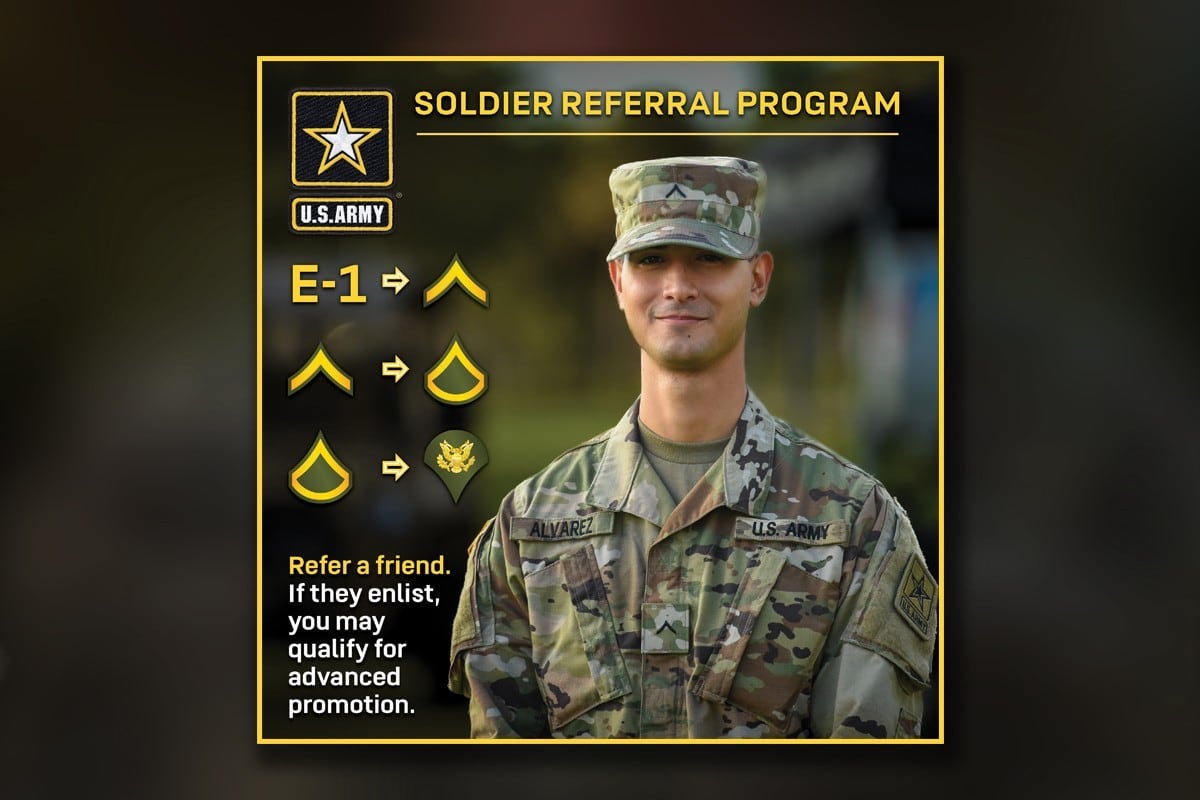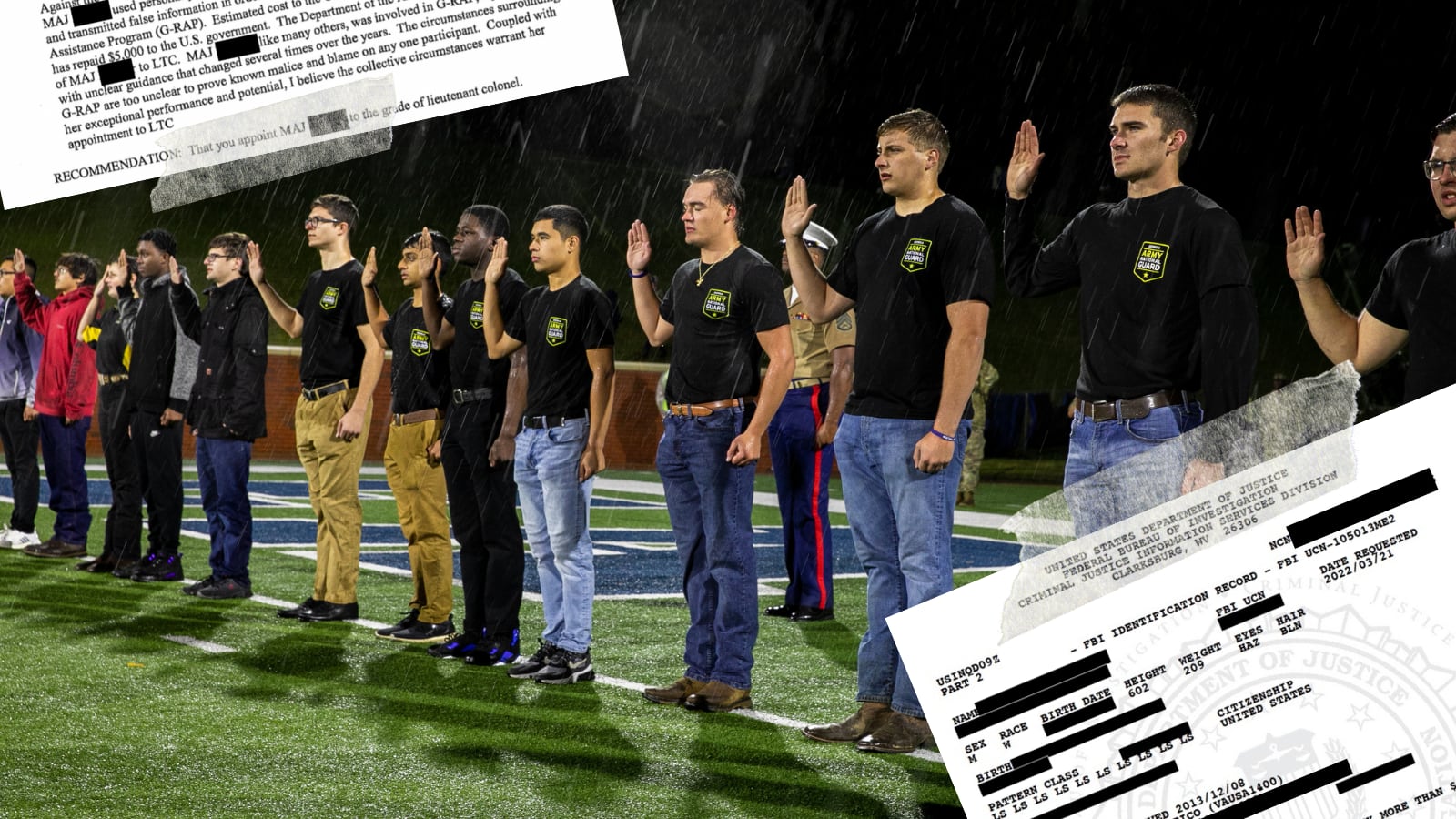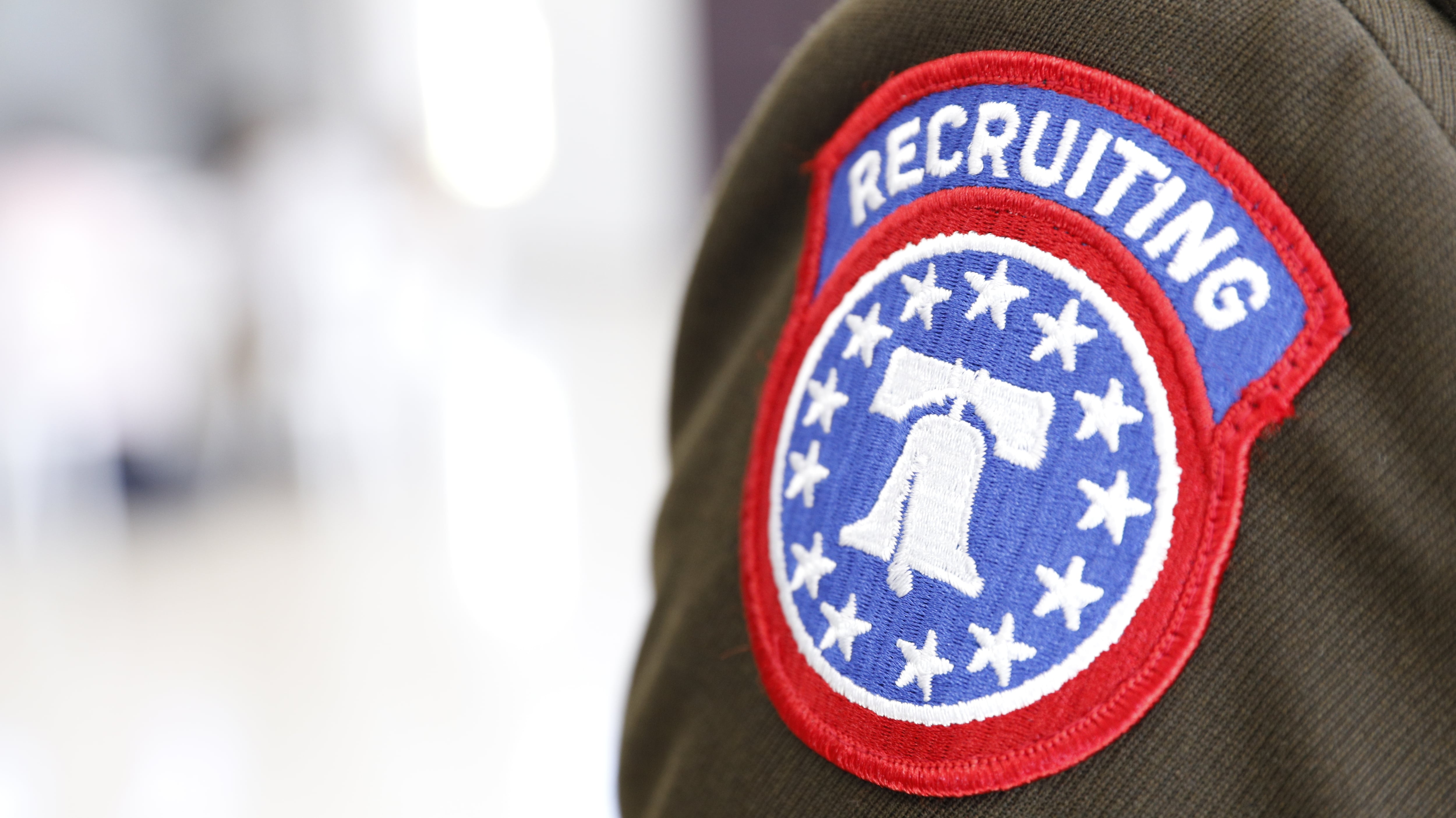Army officials have launched a new performance pay incentive for recruiters amid a crisis that left the service’s end-strength goal short by around 20,000 troops in fiscal year 2022.
The Army’s assistant secretary overseeing manpower and reserve affairs, Agnes Gereben Schaefer, launched the “Recruiter Production Incentive – Assignment Incentive Pay” program, according to a Jan. 9 memo obtained by Army Times. The branch acknowledged the struggles of past programs, noting this initiative was designed to avoid them.
The move represents another step the service is taking to try and address its manpower issues, which left a massive shortfall for fiscal 2022 after missing recruiting goals by roughly 15,000. Other efforts underway include a preparatory course that helps prospective soldiers improve their fitness and test scores and a new referral program using ribbons and early promotions to incentivize non-recruiters to refer applicants to recruiting personnel.
RELATED

The new program will pay recruiters quarterly cash bonuses based on the recruits’ scores on the Armed Forces Qualification entry test, which rates applicants’ performance on a one to 99 scale relative to how their peers perform on the Armed Services Vocational Aptitude Battery test. A recruit’s score places them within an aptitude category, with those scoring between one and nine being in Category V and ineligible for service, and those scoring between 93 and 99 being in Category I.
But there’s a catch.
The bonuses are only for “overproduction,” according to the memo. That means recruiters will have to meet their quotas — and replace any signees who drop out of the Delayed Entry Pool before going to basic training — before they earn the production pay.
Recruiters will receive $150 for each non-prior service recruit in Category IIIA, which requires a minimum score of 50 or better, who ships off to basic training, according to “initial” rates detailed in the memo. Each Category IIIB accession, requiring a score between 31 and 49, will earn the recruiter $75.
The program caps recruiters’ performance earnings at $4,500 per quarter, and Army-selected recruiters already receiving special pay due to voluntary or involuntary tour extensions aren’t eligible to receive the bonuses.
“Really, it’s about taking care of our people,” said the top general for Army Recruiting Command, Maj. Gen. Johnny Davis, in a press release announcing the policy. “We must take care of the recruiting superstars who continuously go above and beyond, regardless of how challenging the recruiting environment becomes.”
The program is slated to run through Dec. 31, 2024, the memo said, though it may end in December 2023 unless Congress extends a key funding authorization.
Avoiding previous pitfalls
Service officials also told Army Times that the new program will avoid the paperwork issues that plagued a predecessor pilot program, which Army auditors said potentially overpaid $492,000 to recruiters, according to an Army Audit Agency report obtained by Army Times.
The service’s recruiting command had a 17-month pilot program — dubbed the Recruiter Performance Pay pilot — from July 2020 until October 2021, according to the audit and Army personnel directorate spokesperson Lt. Col. Joseph Payton.
Similar to the new production pay program, the pilot paid incentives to participating recruiters on a per-recruit basis, but amounts were contingent on a new soldier finishing his or her training.
According to auditors, paperwork issues stemming from a complex, imperfect validation process meant 26 of 66 audited recruiters “received potentially improper payments.” Auditors flagged the payments for a variety of issues, including recruiters not signing their program agreements, not enlisting the recruits for whom they received payments, failing to verify training completion and other administrative errors.
Payton, the personnel directorate spokesperson, said the service “considered insights from the pilot as it developed its newest incentive program,” noting that the idea for the new structure “originated from the recruiters on the ground.”
A spokesperson for the recruiting command, Brian McGovern, added that the command “has implemented multiple control measures at each level of the organization to ensure the integrity of the [new] program.”
Another previous recruiting incentive program, the Guard-Recruiting Assistance Program, used non-recruiting personnel working on the side for an independent contractor to provide referral assistance to recruiters. The program, which ran from 2005 to 2012, helped the National Guard fill its ranks during a high-usage period of the Global War on Terror.
But auditors warned it could be rife with fraud, and Congress said to find it. In response, a massive criminal investigation unfolded. An April 2022 Army Times investigation found that the probe went too far, issuing administrative punishments and creating false criminal histories in a Federal Bureau of Investigation database for troops who were never arrested or charged with a crime.
RELATED

The Army is working to correct those criminal histories, and Congress made an amendment to the fiscal 2023 defense policy bill to monitor the service’s progress.
Asked how the Army has learned from previous programs, personnel directorate spokesperson Payton committed to “rigorous U.S. Army oversight” and said that the new performance pay “differs from previous incentive programs in that it does not require external contractors and only recruiting NCOs assigned to [Army Recruiting Command] are eligible.”
Davis Winkie covers the Army for Military Times. He studied history at Vanderbilt and UNC-Chapel Hill, and served five years in the Army Guard. His investigations earned the Society of Professional Journalists' 2023 Sunshine Award and consecutive Military Reporters and Editors honors, among others. Davis was also a 2022 Livingston Awards finalist.





